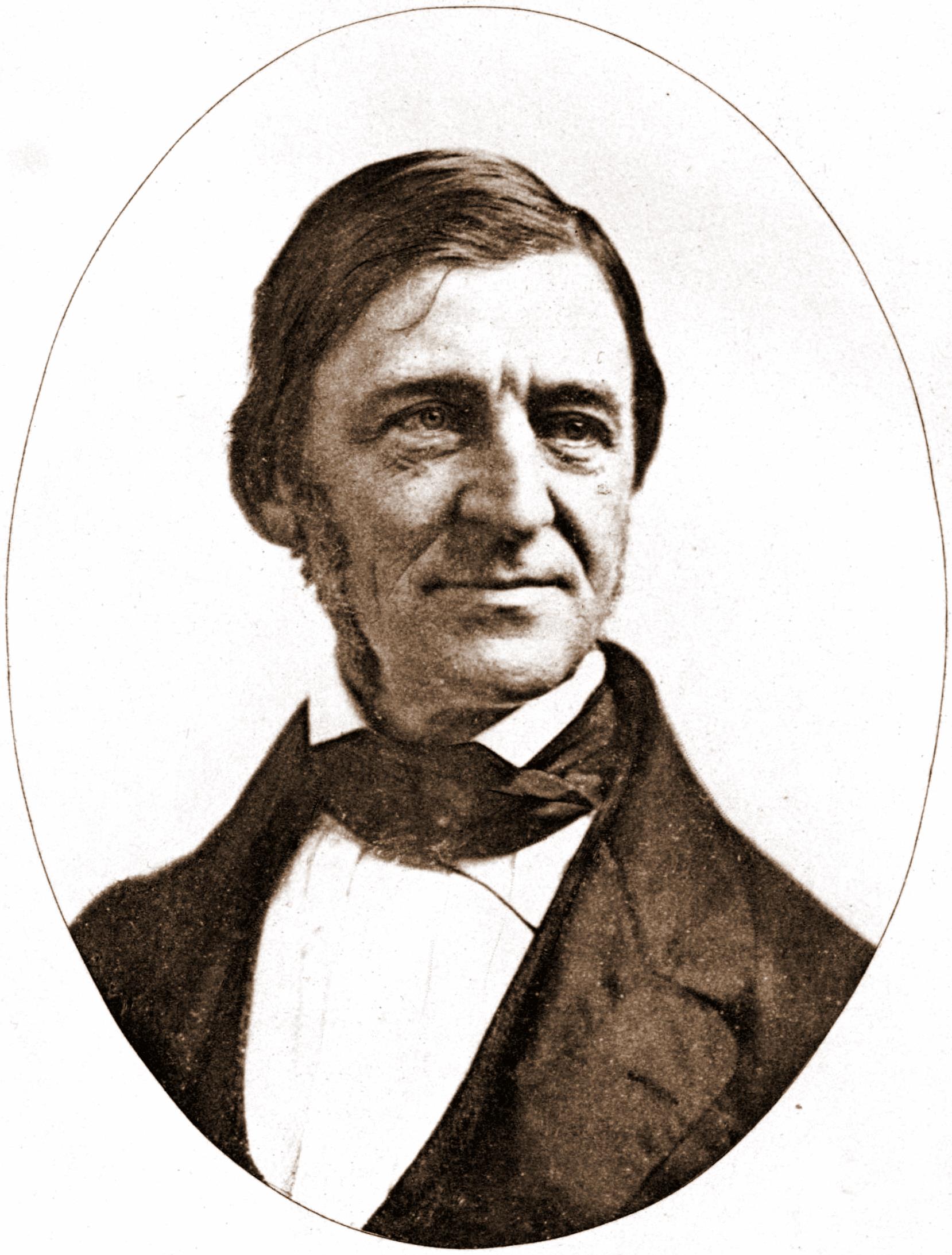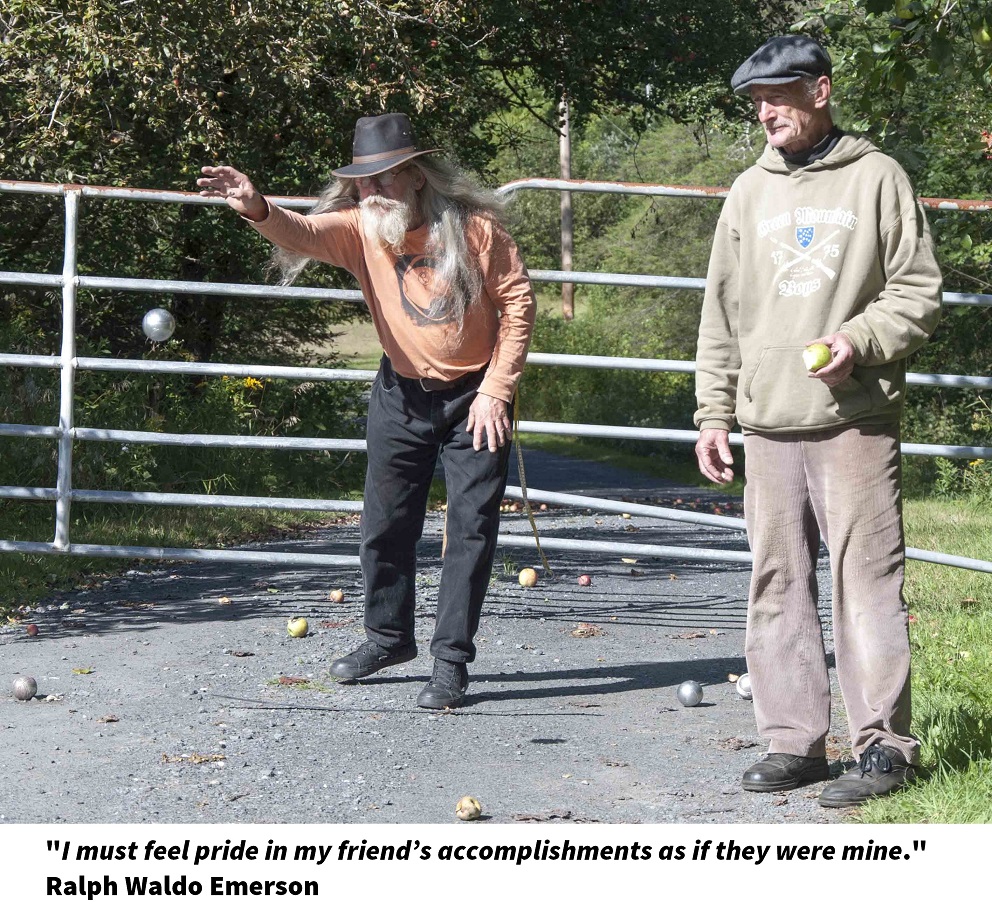|
Ralph Waldo Emerson |
|
FRIENDSHIP AS ELEVATING THE SOUL
The following passage is adapted from Emerson’s essay “Friendship” (published in Essays: First Series in 1841). In this essay, Emerson presents a sublime vision of friendship – so sublime that it is almost impossible for humans to achieve it fully. True friendship is not for fun or convenience, but for spiritual inspiration. Friends are valuable not because they are somebody to chat with, but because they help elevate the soul. True friendship has little to do with practical matters and with everyday problems – it involves the higher part of ourselves. True friendship is a spiritual companionship.
I must feel pride in my friend’s accomplishments as if they were mine – wild, delicate, expressing his virtues. When he is praised, I feel as warmly as the lover when he hears praise about his beloved girl. […] We should give dignity to each other’s daily life, and embellish it by courage, wisdom, and unity. Daily life should never degenerate into something usual and established, but should be alert and inventive, and add meaning to what used to be dull work. […] Why should we desecrate noble and beautiful souls by intruding on them? Why should you insist on rash personal relations with your friend? Why should you go to his house, or know his mother and brother and sisters? Why should he visit you at your house? Are these things relevant to your relations? Leave this touching and clawing. Let him be a spirit to me. I want a message from him, a thought, a sincerity, a glance, but not news, nor pottage. I can get politics, and chat, and neighborly services from cheaper companions. Shouldn’t the company of my friend be to me poetic, pure, universal, and great as nature itself? Should I feel that our connection is profane in comparison with this cloud that sleeps on the horizon, or that waving grass that divides the stream? Let us not vilify it, but raise it to that standard.
[…] Let us carry that which is so great as friendship with as much grandeur of spirit we can. Let us be silent, — so we may hear the whisper of the gods. Let us not interfere. […] The higher the standard we demand of friendship, the less easy it is to achieve it with flesh and blood. We walk alone in the world. Friends who are like those we desire are dreams and fables. But a sublime hope always cheers the faithful heart, that elsewhere there are souls which can love us, and which we can love. […]
[…] The essence of friendship is entireness, a total greatness and trust. It must not suppose, or provide for weakness. It treats its object as a god, that it may deify both.
|
|
RALPH WALDO EMERSON |
||
|
THE OVER-SOUL Man is a stream whose source is hidden. Our being descends into us from we know not where. The most exact calculator cannot predict that something incalculable may not happen the very next moment. I am forced every moment to acknowledge a higher origin of events than the will which I call “mine.” We live in succession, in division, in parts, in particles. Meantime, within each person is the soul of the whole, the wise silence, the universal beauty, to which every part and particle is equally related, the eternal ONE. And this deep power in which we exist, and whose beatitude is all accessible to us, is not only self-sufficient and perfect in every hour; furthermore, the act of seeing and the thing that is seen, the seer and the spectacle, the subject and the object, are one. […] |
When you subscribe to the blog, we will send you an e-mail when there are new updates on the site so you wouldn't miss them.






 All goes to show that the soul in a person is not an organ, but animates and exercises all the organs. It is not a function – like the power of memory, of calculation, of comparison, but it uses these as hands and feet. It is not a faculty, but a light. It is not the intellect or the will, but the master of the intellect and the will, the background of our being in which they lie — an immensity that is not possessed and that cannot be possessed. From within or from behind, a light shines through us upon things, and makes us aware that we are nothing, but the light is all. Man is the façade of a temple where all wisdom and all good dwell.
All goes to show that the soul in a person is not an organ, but animates and exercises all the organs. It is not a function – like the power of memory, of calculation, of comparison, but it uses these as hands and feet. It is not a faculty, but a light. It is not the intellect or the will, but the master of the intellect and the will, the background of our being in which they lie — an immensity that is not possessed and that cannot be possessed. From within or from behind, a light shines through us upon things, and makes us aware that we are nothing, but the light is all. Man is the façade of a temple where all wisdom and all good dwell.